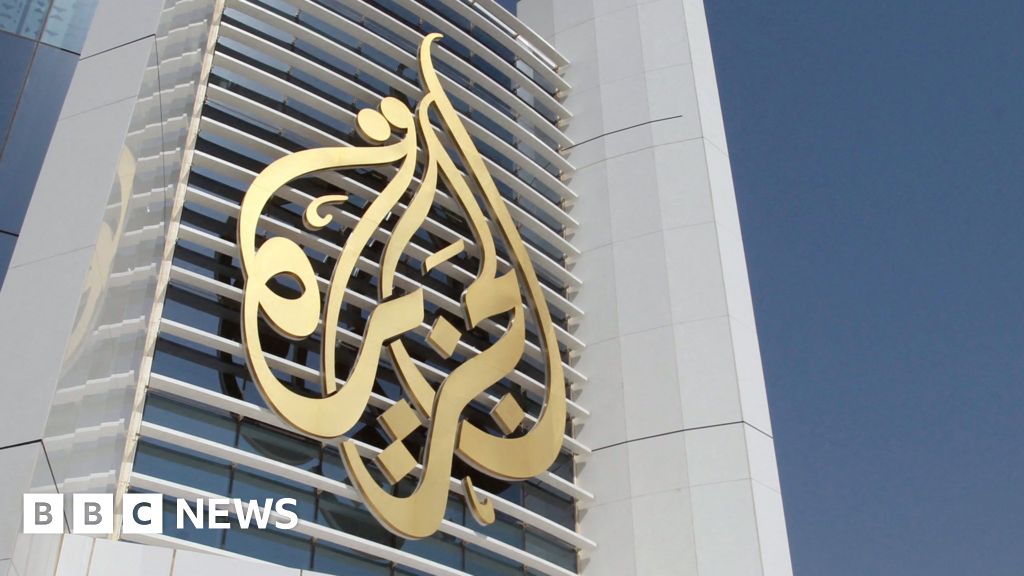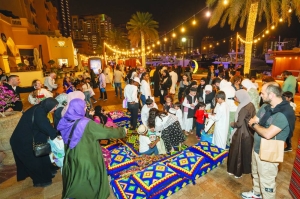Al Jazeera office raided as Israel takes channel off air

 Reuters
ReutersIsrael’s government has moved to shut down the operations of the Al Jazeera television network in the country, branding it a mouthpiece for Hamas.
Prime Minister Benjamin Netanyahu said the cabinet agreed to the closure while the war in Gaza is ongoing.
Police raided the Qatari broadcaster’s office at the Ambassador hotel in occupied East Jerusalem on Sunday.
Al Jazeera called claims it was a threat to Israeli security a “dangerous and ridiculous lie”.
The channel said it reserved the right to “pursue every legal step”.
Israel’s Communications Minister Shlomo Karhi said equipment had been taken in the raid.
A video posted by the minister on X shows police officers and inspectors from the ministry entering a hotel room.
A BBC team visited the scene, but was prevented from filming or going into the hotel by police.
According to Reuters news agency, the Israeli satellite service Yes displayed a message that read: “In accordance with the government decision, the Al Jazeera station’s broadcasts have been stopped in Israel.”
The blockage is effectively only partial, however, as the channel is still accessible through Facebook in Israel.
The shut down of Al Jazeera in Israel has been criticised by a number of human rights and press groups.
The Association for Civil Rights in Israel (ACRI) said they had filed a request to the country’s Supreme Court to issue an interim order to overturn the ban.
The group said that claims that the broadcaster was a propaganda tool for Hamas were “unfounded”, and that Sunday’s ban was less about security concerns and more to “serve a more politically motivated agenda, aimed at silencing critical voices and targeting Arab media”.
The Foreign Press Association (FPA) urged the Israeli government to reconsider its decision, saying the shut down of Al Jazeera in the country should be “a cause for concern for all supporters of a free press”.
The FPA said in a statement that Israel now joins “a dubious club of authoritarian governments to ban the station”, and warned that Mr Netanyahu has the authority to target other foreign outlets that he considers to be “acting against the state”.
The Committee to Protect Journalists’ (CPJ) Program Director Carlos Martinez de la Serna echoed the same concerns, saying: “The Israeli cabinet must allow Al Jazeera and all international media outlets to operate freely in Israel, especially during wartime.”
The UN’s Human Rights office also called the Israeli government to reverse the ban, posting on X: “A free & independent media is essential to ensuring transparency & accountability. Now, even more so given tight restrictions on reporting from Gaza.”
 Getty Images
Getty ImagesForeign journalists are banned from entering Gaza, and Al Jazeera staff there have been some of the only reporters on the ground.
For years, Israeli officials have accused the network of anti-Israeli bias.
Their criticisms of the broadcaster have intensified since the 7 October Hamas attacks on southern Israel, in which about 1,200 people were killed and more than 250 were taken hostage. Some 128 of those hostages are still unaccounted for, with at least 34 presumed dead.
At least 34,683 Palestinians have been killed and 78,018 injured in Israel’s subsequent military campaign in Gaza, according to the Hamas-run health ministry.
Last month, the Israeli parliament passed a law giving the government power to temporarily close foreign broadcasters considered a threat to national security during the war against Hamas.
Qatar, where Al Jazeera is headquartered, is mediating talks between Israel and Hamas over the now almost seven-month-long conflict.
Previous negotiations mediated by Qatar led to a temporary ceasefire and the release of 105 Israeli hostages in November.
Al Jazeera has accused Israel of deliberately targeting its staff.
Journalists including Hamza al-Dahdouh, the son of Al Jazeera Gaza bureau chief Wael al-Dahdouh, have been killed by Israeli strikes. Israel denies targeting journalists.
“Israel’s suppression of free press to cover up its crimes by killing and arresting journalists has not deterred us from performing our duty,” the network said in its response to Sunday’s ban.
Related
T&T Group and Qatar partner on $4.5 billion sports-entertainment complex
T&T Group and Qatar’s JTA International Investment Holding expect to put the $4.5 billion sports-entertainment complex into operation in 2028.
3rd edition of The Pearl Island Ramadan Bazaar kicks off
The Pearl Island has welcomed visitors to a mesmerising Ramadan ambience following the launch of the third edition of The Pearl Island Ramadan Bazaar – an ann
Qatar Airways Ramps Up IFEC Capabilities
Qatar Airways is accelerating its inflight entertainment and connectivity capabilities through two new aftermarket developments. The airline recently ann
Alaraby 2 unveils Ramadan 2025 programmes lineup
Egyptian drama “Al-Noss” poster Qatar-based TV channe













